Generations Smiles
‘24 Diabetes Meds & Your Mouth: A Balancing Act for Better Health
of Oral Health Means Better Health At Every Age and Every Stage

Quality care from sea to shining sea.






‘24 Diabetes Meds & Your Mouth: A Balancing Act for Better Health






Chestnuts roasting on an open fire are terrific. If only holiday snack options ended there. From Halloween candy to New Year’s champagne, the holiday season is packed with potential pitfalls for people who are trying to maintain normal blood sugar levels.
Luckily, your dentist can help. People with uncontrolled diabetes are three times more likely to develop gum disease – and the reverse is also true: Maintaining good oral health can help you regulate your blood sugar levels.
The Mouth-Body Connection® is powerful, and it offers an incredible opportunity for people who don’t want to wait until New Year’s Eve to resolve to take control of their health.
Through advanced cleaning techniques, blood sugar screening and other services, your dentist can play a vital role in supporting your overall health and wellbeing. My colleagues and I feel deeply gratified when people receive proper treatment for periodontal disease and then experience meaningful decreases in their A1C, a test that measures average blood sugar levels over the last three months. Good oral hygiene is an important part of maintaining your overall health, and it can help keep your blood sugar in check.
So this holiday season, if you are going to nibble on a sugar cookie here and sip some eggnog there, remember to be meticulous with your oral health and visit your dentist regularly. Through fairly simple acts, you have the power to better control your health and wellbeing – and that may be the best holiday gift anyone could wish for.
Until Next Time,

Carolyn Ghazal, DDS



This Holiday Season, Give Yourself the Gift of Floss
Discover how maintaining good oral health can help regulate blood sugar levels this holiday season.
Dentists and Doctors Form “Dream Team” of Diabetes Care
How can dentists and doctors work together to manage diabetes while protecting your oral health? Find out.
A Path to Good Health
Discover how Smile Generation® MyChart links dental and medical records, empowering you AND your doctors to better manage your health!
Smile For Special Needs
Know someone with special needs? Don’t miss how we’re teaming up to deliver compassionate care!
page 03 page 18 page 10 page 06

By Dr. Harris Khakwani, MD
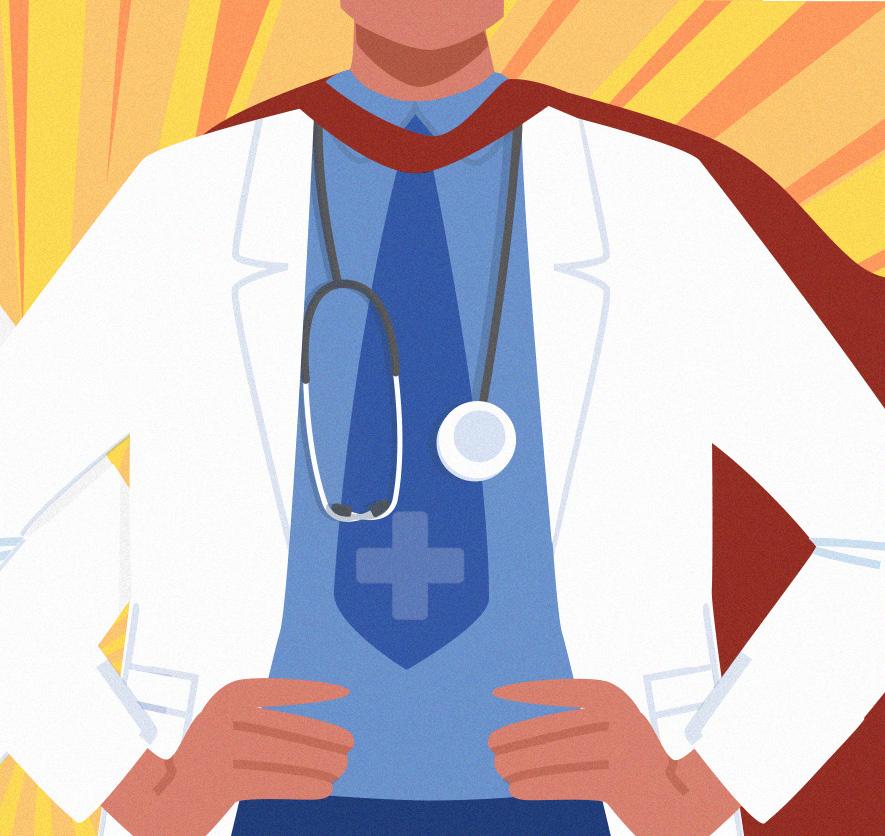
Certain medicines have changed the game in diabetes care, allowing people to live full lives as they manage their chronic disease. Unfortunately, these same medicines may also impact oral health. Does that mean you have to choose between managing your blood sugar and protecting your smile?
Not at all. Working together, your primary care doctors and dentists can team up to address your overall health.
Through routine screening, patient education and coordinated care, doctors and dentists can collaborate to help patients not only achieve better diabetes control but also to maintain healthy gums and overall oral health.
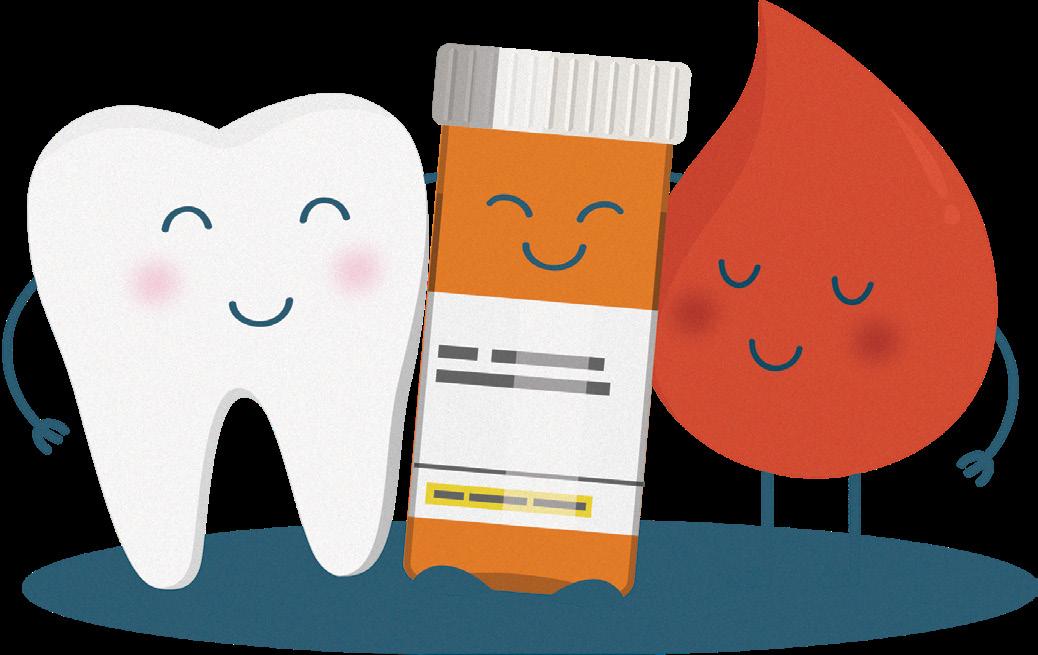
One of the best ways to get that collaboration started is to tell your dentist if you are taking any of the following medications:
One of the most commonly prescribed medications for type 2 diabetes, metformin decreases the amount of glucose, or sugar, produced in the liver. The medication has been around for many years and has few side effects, but in some people it can cause dry mouth, which may increase the risk of cavities and oral infections.
The powerful nature of the MouthBody Connection® means that both primary care doctors and dentists play pivotal roles in ensuring patients maintain their oral health.
During regular check-ups, tell your primary care doctor about any oral health symptoms such as dry mouth, bleeding gums or persistent bad breath. They should talk to you about the importance of oral hygiene and its connection to diabetes management, and they should
encourage regular dental visits. If an oral health issue is detected, your primary care doctor can refer you to a dental professional.
Meanwhile, tell your dentist about your diabetes diagnosis. This will allow your dentist to conduct thorough examinations, looking for signs of periodontal disease, cavities and other oral conditions that may be exacerbated by diabetes. Your dentist may also want to evaluate your salivary flow, especially if you are experiencing dry mouth. This can help prevent cavities and infections.
(e.g., Glipizide, Glyburide)
These medications stimulate insulin release from the pancreas. A potential side effect is hypoglycemia, which can lead to a decrease in salivary flow, fostering an environment that allows bacteria to grow and lead to gingivitis (gum inflammation) and periodontitis (gum disease).
A standard ongoing treatment for type 1 diabetes and often used in advanced type 2 diabetes, insulin can indirectly affect oral health. More commonly, oral health would be affected by poorly controlled diabetes, which can lead to high blood sugar levels. These high levels may impair wound healing and increase the risk of periodontal disease.
(e.g., Canagliflozin, Dapagliflozin).
These drugs work by preventing glucose reabsorption in the kidneys, resulting in glucose excretion through urine. A side effect is increased risk of urinary and genital infections, which can sometimes extend to oral thrush (candidiasis) due to changes in the body's microbial environment.
(e.g., Sitagliptin)
These medications help increase insulin release and decrease glucagon levels. While they have fewer direct oral health side effects, maintaining good glycemic control is critical to preventing complications such as periodontal disease.
Diabetes can affect every aspect of a person’s health. Working together, your doctor and dentist can coordinate care plans and help you control your diabetes – all while protecting the health of your smile.
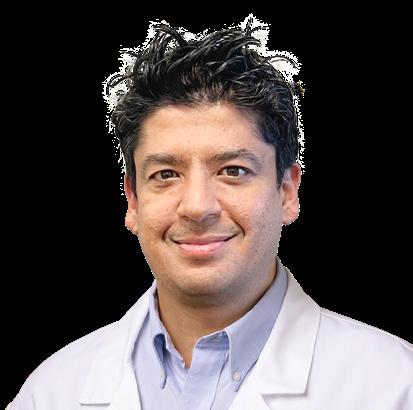
Dr. Harris Khakwani, MD is the medical director at PDS Health and a family medicine physician in Phoenix, AZ. He graduated from King Edward Medical University and has over 21 years of experience in the medical field.
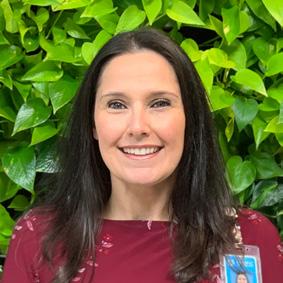
Janie Peters Vice President, Business & Technology Solutions at PDS Health

Dr. Ishpreet Kaur Associate Dentist at Dentists of North Mesa in Arizona
It wasn’t too long ago when our dental records and medical records were in separate worlds, rarely intersecting. But technological tools such as Smile Generation® MyChart provide us with a digital portal to those records, making our patient experience easier and giving us a clearer view of the relationship between the health of our mouth and teeth and our overall health. Smile Generation® MyChart is powered by Epic, a software system used by many healthcare organizations around the world.
We can use Smile Generation® MyChart to browse our health history, view the results of tests, schedule appointments and sign documents, and much more.
Generations of Smiles editors discussed Epic and Smile Generation® MyChart with Dr. Ishpreet Kaur, who has been using it for at least two years at her practice, Dentists of North Mesa in Mesa, Ariz., and Janie Peters, Vice President for Business & Technology Solutions at PDS Health. Here are their insights on how Epic helps dentists and doctors collaborate and how Smile Generation® MyChart can be a valuable patient tool in maintaining or improving health.



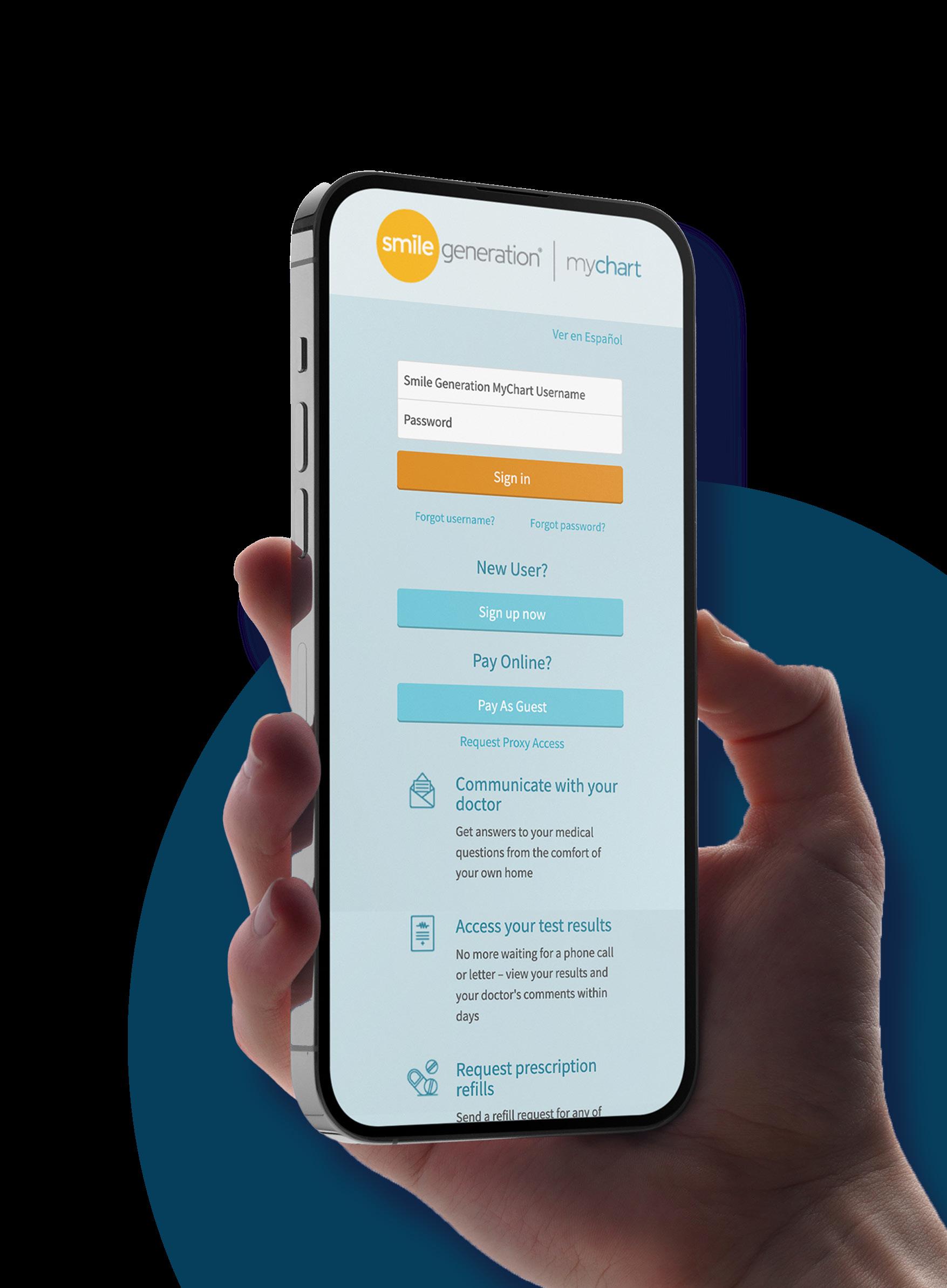
Q. Why did Smile Generation-trusted offices offer Epic’s MyChart?
A. Janie Peters:
Epic has really been the gold standard in electronic medical record software in the medical community for many years now. And it's a familiar tool for patients in many places where Smile Generation-trusted practices are located. Many of the medical centers and universities in those areas use Epic.
So there's a high likelihood that our patients who seek care at one of our Smile Generation-trusted practices are also seeking care at a medical practice using Epic somewhere in one of the many states that we support.
We thought about how the patient would be able to best manage their care, and the ability of their

care providers to be able to easily communicate and share information. Irrespective of which health organization patients are seen at, they can log into a central MyChart portal and easily jump between the different organizations.
So whether it's their Smile Generation® MyChart with one of our Smile Generation-trusted practices, or maybe it's their MyChart through one of the UCs in California, or Kaiser Permanente, whatever community it might be, the patient would have full visibility of what's going on with their care across both their dental and their medical practitioners.
And then on the flip side, within Epic, there are easy ways for those providers to communicate and coordinate care and share records with one another without having to send cumbersome letters or faxes.
Q. How has the Epic system helped in treating dental patients?
A. Dr. Ishpreet Kaur:
The biggest thing is that since dental is integrated with medical, we're able to access the health records of the patient, which means that we're able to also communicate with different doctors if needed. And just more of the information is accessible to us, which makes it easier and more efficient for us to get the patients healthier, and get their treatment started.
Before I started using Epic, a lot of times, patients didn't know much about the medications they're on, the dosages, just health history-wise, there wasn't as much information that they had at their fingertips. But with the Epic system, I'm able to access everything and I'm able to like tell the patient, "Oh, are you still taking this medication?” And when they hear it, they're like, “Yeah, it's that one.”

Q. What are some examples of how having mutual access to a patient's medical chart helps dentists and doctors in treating patients?
A. Dr. Ishpreet Kaur:
We're able to get access to information like surgical history and medications. So if there's ever any condition that might be a red flag for treatment that I have to do as a dentist, I'm able to get that information without the patient having to contact a bunch of doctors and wait a long time.
With the extractions, we have to be very careful with certain aspects of their medical history just to make sure there are no issues that might arise in the long run. If they've ever had cancer or have undergone radiation treatment, if they've ever been on bisphosphonates, had osteoporosis history, all of that can impact the healing and the long-term success of extractions.
I've had a patient who had to have multiple extractions and they weren't fully aware of whether they were taking bisphosphonate medications. They knew that they had osteoporosis. So luckily with Epic, I was able to access their medical history and see which medications they're taking. One of the medications commonly used to help with osteoporosis is Fosamax. And if a patient is on Fosamax, it can cause issues if an
extraction is done, if care is not taken in a specific way. This patient was very thankful that we were able to catch that. We were able to connect with their primary care doctor to figure out a course of plan for the long run.
Because we have that access to the chart, we're not blindly guessing and we're not having to wait weeks to hear back from their primary care doctor. In the past, I've had to do medical releases and it's just a paper trail. I have so much information accessible to me that I can make more informed decisions in a timely manner and we can still connect with the doctor and we don't have to start from ground zero. We can ask more specific questions so that we can provide that care more effectively for the patients.
Q. What's an example of a condition that might be noticed during dental visits that dentists can share with a patient’s doctor using the Epic system?
A. Janie Peters:
Patients visit their dentists more often than they do their doctors. Sometimes patients have elevated blood pressure that has not been unaddressed. Our dentists would recommend that they see a medical provider right away. The records from the visit are going to be available for that medical provider to see.
Q. Are doctors able to do the same with dental records when planning patient care?
A. Janie Peters: They have the same ability to access records. There are opportunities on both sides. Commonly, on the medical side of the world, before cardiologists complete a cardiac procedure on a

patient, they actually want to have a dental clearance. The ability for cardiologists to be able to refer their patients to a dentist who they know is like-minded and thinking of the patient's whole-body health is critical. It also is going to allow their patients to get quicker care.
A. Dr. Ishpreet Kaur:
We've had several doctors who have contacted us when there are severe surgeries that are going to be done, such as heart transplants, or surgeries on kidney-related issues. They've seen through the Epic system that this patient has active periodontal disease, is getting ongoing care or has an active infection in a specific area, and they need to get clearance for it.
The doctors reach out to us so that we can essentially treat that disease or infection, give the patient clearance for surgery, and make sure that there are no issues for medical procedures in the long run either.
Q. How can patients use Smile Generation® MyChart to improve their health?
A. Dr. Ishpreet Kaur:
The MyChart system is what patients can log into so they're able to access their health records and get a better understanding of their overall health, because everything is visible to them after their visit is done, including test results. Their MyChart also has information about billing, any future procedures, so they're able to access that instead of having to come in or make multiple calls.
In general, Smile Generation®
MyChart is just a great way to build that relationship with their dentist or doctor because they have everything accessible to them. They can send messages directly to their dentist to get responses. They don’t

have to call the office, speak to someone upfront, and then wait to potentially hear something back. And I think that's a really big thing because a lot of times the questions they have are specifically for their dentist.
Smile Generation® MyChart helps a lot with just making it more of a whole approach to taking care of their health, not only dental, but also health in general.
Diabetic or Pregnant?
when you sign up for the Smile Generation Dental Plan!
Gum disease can significantly impact diabetes management and pregnancy outcomes. That's why maintaining excellent oral health is crucial. Save 20-50% on most treatments with same-day discounts—no waiting.
Discover how the Smile Generation® Dental Plan can enhance your health journey.



Forget your troubles, but don’t forget your dental benefits.
Most dental benefits expire at year-end. Let us help you maximize those benefits and make the treatment you need or want more affordable.


Discover the impact of Smile Generation teaming up with the PDS Foundation Smile for Special Needs campaign to deliver compassionate care to those with special needs.

The Smile Generation exists to connect you with trusted dentists in your area and to offer education on the critical link between oral and overall health. We’d love to know what you think of our magazine.
This Holiday Season, Give Yourself the Gift of Floss
1. Periodontitis and Diabetes: A Two-Way RelationshipNational Library of Medicine
2. Oral Health and Diabetes-CDC
3. Effect of Periodontal Treatment on Glycemic Control of Diabetic Patient-National Library of Medicine